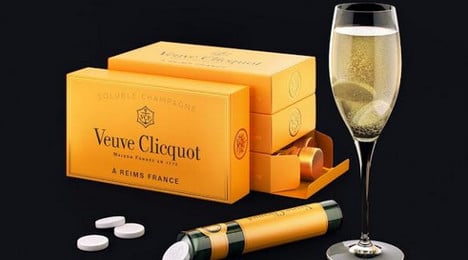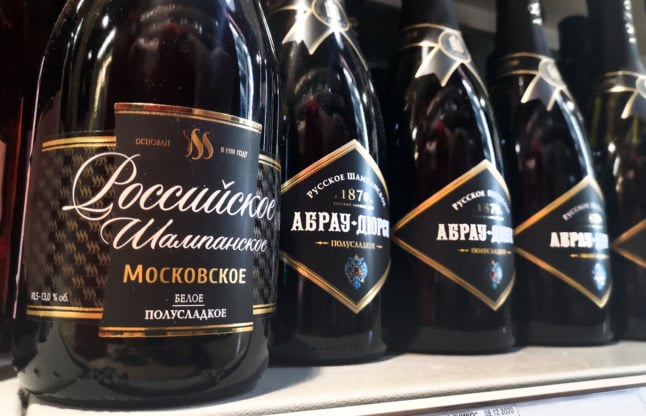It could have spelled the end of the popping champagne corks and saved a lot of money on recycling bottles.
That’s if it had been real.
Social networks went wild in France on Tuesday morning when news spread that the champagne label Veuve Clicquot had created champagne in the form of a dissolvable tablet like the well-known hangover cure Alka-Seltzer. Several brand websites also eagerly published the news.
“In 2014, after the invention of alcohol powder, Veuve Clicquot is trying it on – A soluble champagne tablets made of alcohol powder will turn water into magnificent champagne,” wrote one website with images of the product.
As you could imagine in a nation that is home to the famous sparkling wine, there were soon calls of “sacrilege”
Non? UN SACRILÈGE! http://t.co/HpveQOHHkm #veuvecliquot #comme1doliprane
— Laurent DUBOIS (@LaurentDUBOIS) August 4, 2014
The new tablets, which could simply be added to a glass of water to create Champagne, was to be called “Shh…ampagne” because of the noise it makes when dissolving in water.
Even if the idea seemed far-fetched the pictures below were passed around on the internet by people eager to try it out.
But unfortunately it turns out the new creation was not the work of Veuve-Clicquot, which is owned by luxury group LVMH, but a simple hoax by Russian ad agency called Firma.
The marketing agency had not been given permission by Veuve Clicquot to use its name and was quickly taken to task by authorities and the French firm was forced to issue a denial.
The French organisation CIVB (Interprofessional Committee for Wine and Champange) has demanded the Russian ad agency remove the images and has launched an investigation to find out the origins of the pictures.
Would you drink Champagne if it was ever in the form of a dissolvable tablet?



 Please whitelist us to continue reading.
Please whitelist us to continue reading.
Member comments